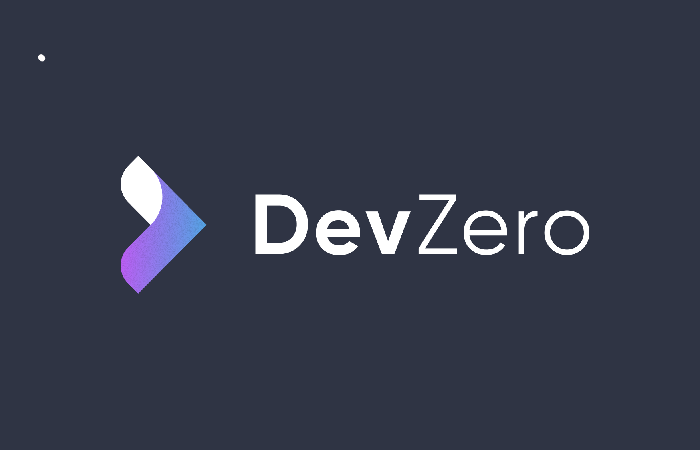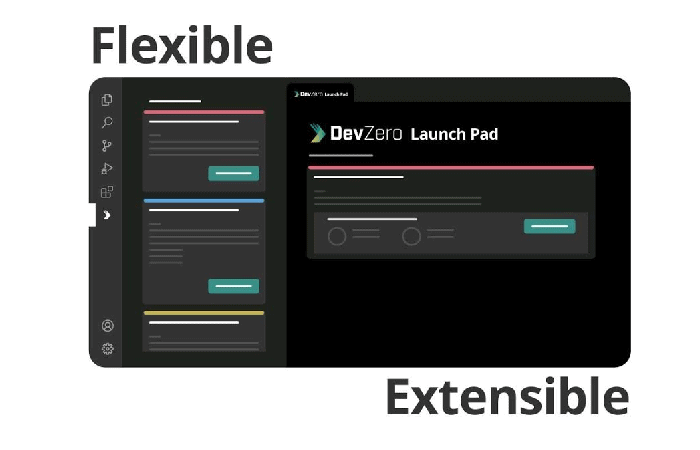DevZero By Former Uber Engineers Raised $26M In Seed And Series A For DevOps Startup

The world of DevOps is constantly evolving, and companies need to stay ahead of the curve if they want to remain competitive. That's where DevZero comes in, founded by former Uber engineers who understand the importance of efficient and effective DevOps practices. DevZero has recently raised an impressive $26 million in seed and series A funding to further develop its innovative DevOps platform.
With an emphasis on making it simpler for developers to create code in the cloud, Ray and Rob founded the Seattle-based software development startup DevZero.
About DevZero
For any business invested in efficient software development, DevZero's platform is a must-have.
-
By giving developers the resources they need to function effectively in a cloud-based environment, DevZero promises to make the process of developing code in the cloud simpler.
-
The business's strategy is built on agile approaches, which place a high value on flexibility and teamwork, as well as the usage of contemporary development tools and procedures.
-
DevZero offers exceptional capabilities such as automated testing, continuous delivery, and infrastructure automation that can streamline the entire software development lifecycle.
-
It is one of several "DevOps" startups that market technologies to increase developer productivity as more businesses shift to cloud-based services.
-
The software from DevZero allows developers to create with Kubernetes or serverless architectures a production-like environment on their local devices. Okta, Carta, and other companies use it.

What Are Kubernetes or serverless architectures?
With the aid of serverless architectures and kubernetes, which are both widely employed in contemporary software development, businesses can create scalable, dependable, and effective cloud-based apps.
Kubernetes
-
Google created the open-source container orchestration software known as Kubernetes, commonly referred to as K8s. The deployment, scaling, and management of containerized applications are all automated.
-
For managing and deploying containers, Kubernetes offers a robust collection of tools, including load balancing, auto-scaling, and self-healing features. Using Kubernetes, developers can manage and deploy their applications with dependable and consistent performance across several cloud service providers or on-premises data centres.
Serverless
-
On the other side, serverless architecture is a design where developers may write and distribute code without needing to control the underlying infrastructure. In a serverless architecture, programmers create functions that are called when necessary and are activated by events or requests.
-
These functions' infrastructure is provided by a cloud service provider, such AWS Lambda or Google Cloud Functions, and is scaled automatically in response to demand.
-
Serverless designs have a number of advantages, such as lowered operational costs, quicker development cycles, and enhanced scalability. Because the cloud provider handles scaling, security, and maintenance, developers can concentrate on developing code rather than managing infrastructure.

What Does Writing Code In The Cloud Mean?
The practice of creating software code utilising a cloud-based development environment and tools as opposed to a local system is referred to as "writing code in the cloud."
-
In a cloud-based development environment, programmers write, test, and deploy their code using tools and resources offered and hosted by a cloud services provider, such as Amazon Web Services (AWS), Microsoft Azure, or Google Cloud Platform (GCP).
-
There are many advantages to writing code in the cloud as opposed to conventional development methods. One benefit is that it enables programmers to use computing tools and services that would be costly or challenging to set up on their personal computers. This can contain things like strong computing instances, services for processing and storing data, and tools and services for machine learning.
-
Teams of developers can more easily collaborate on a project thanks to cloud-based development environments because they can use the same tools and resources from any location with an internet connection.
-
In addition, cloud environments may come with integrated tools for version control, automated testing, and continuous integration and deployment (CI/CD), which makes it simpler to develop and distribute high-quality software at scale.
-
Yet, there are several difficulties while writing code in the cloud. The tools and services offered by their cloud service provider must be understood by developers, who may also need to pick up new programming languages or development frameworks.
-
Developers should be aware of the performance constraints and differences between cloud-based development environments and local PCs when writing and testing their programmes.

About The Founders
Debo Ray, CEO and co-founder, worked in infrastructure and product security at Uber for almost six years.
Rob Fletcher, co-founder and COO, most recently served as a manager of security engineering at Meta after working at Uber as well.
-
Due to the recent explosion in microservices, Debo and Rob are quite familiar with the benefits that solid internal developer tooling provides.
-
But, these solutions are only available to large businesses, so they created the DevZero Development Environment platform, which enables all developers to ship their applications more quickly by allowing them to write and test their code in environments that are identical to those used in production.
The Investors
Investors in the company include:
-
Foundation Capital, which led the company's seed round.
-
Anthos Capital, which led the Series A financing.
-
Fika Ventures, Foundation Capital, and Madrona Venture Group are a few additional funders.
Future Of DevZero
-
With its continued commitment to innovation and the adoption of cutting-edge technologies, DevZero is poised for an even brighter future.
-
With DevZero's platform for cloud-based coding, Kubernetes and serverless architecture support, along with a team of experienced engineers and a track record of success,it is bound to make great progress,
-
Businesses who choose to partner with DevZero can be assured of staying ahead of the competition and achieving their goals through efficient, scalable and reliable software developmentture Of DevZero




